by Dr. Michelle Martin, Contributor
Educator and Author
Huffington Post
Jun 6, 2016, 06:32 AM EDT
Updated Jun 7, 2017
Un mapa para ayudar a entender y seguir los instintos (English translation: A Map to Help Understand and Follow One's Instincts), EI Nuevo Herald, Aug. 6, 2002, at C3. Copy supplied.
-- UNITED STATES SENATE COMMITTEE ON THE JUDICIARY QUESTIONNAIRE FOR JUDICIAL NOMINEES, PUBLIC [AILEEN MERCEDES CANNON]
If I had a dollar for every time I was told I was being too emotional, that I needed to lead with my head and not my heart, well, let's just say that my Starbucks habit would be fully funded. It's taken me years to recognize that what I was often criticized for -- in relationships, at work, in my academic studies -- was actually one of my greatest strengths: my inner voice, my gut instinct, my intuition.
Intuition is defined by researchers as our brain's ability to draw on internal and external cues in making rapid, in-the-moment decisions -- an important skill, particularly in high stress situations. Often occurring outside of our conscious awareness, intuition relies on our brain's ability to instantaneously evaluate both internal and external cues, and make a decision based on what appears to be pure instinct. When people make decisions based on their intuition, they often have difficulty explaining why they did what they did. They just knew what to do, as if a voice was telling them to do something, and they heeded its call.
Women are commonly believed to have stronger intuition than men (which is why we call it women's intuition, and not men's intuition), but this inclination is often undervalued in our logic-based society. As women, we are taught at an early age to ignore our intuition, and trust in the wisdom of others instead. We're also likely to be criticized for being too sensitive, too emotional, too dramatic, and too illogical when we're operating off of our intuition. This constant barrage of criticism can cloud our judgment and make us doubt ourselves, and our instincts.
Because I became tired of doubting my intuition, and of never knowing quite how to respond when accused of being "too emotional," and because I'm a researcher by profession, I decided to do some digging to learn more about the nature of intuition, including whether it was a real thing (it is), and whether women have it more (they do). What I found shouldn't have surprised me (it did), because it was all very consistent with my inner voice, my gut instinct, my intuition.
Basically, researchers have found that although both men and women have the capacity for intuition, women have stronger intuition because our brains are hardwired for it. For instance, one study I found used MRI scans to compare male and female brain connectivity and discovered that the typical male brain is neurologically wired to be more logical, and thus is more effective at linking perception with action.
The female brain, on the other hand, has more neural connections and is more efficient, which makes women better at interpreting social phenomena, including social cues. In other words, men are hardwired to be more logical and women are hardwired to be more intuitive. Men also have higher spatial intelligence and women are better at big picture thinking (also, for what it's worth, men really are better at reading maps, but women are better at multitasking).
Perhaps this is why for years, intelligence agencies, such as the CIA, have known that women make better spies because their heightened intuition allows them to recognize personal and social patterns that are not as visible to men. Female spies are often lauded for having an "extra antenna," for having better people skills, for being better at reading body language and for more easily picking up on social cues.
DCI Tenet created his own National Security Advisory Panel, chaired by Adm. Jeremiah, which helped him prepare in 2000 for the advent of a new administration. Talking points prepared for Tenet's use in meeting with them provide a telling story of the lack of real substance in his relationship with top DOD leaders at that juncture: "Not at war with DOD, but no one there at home. No meetings. DOD needs to step up. SecDef needs 'top cop' to ensure the Services do the right thing." The panel encouraged Tenet to follow his instincts to emphasize the building of personal and institutional relationships in engaging a new administration, but it also told him that he lacked the statutory and regulatory authorities necessary to meet his responsibilities.
-- Directors of Central Intelligence as Leaders of the U.S. Intelligence Community, 1946-2005, by Douglas F. Garthoff
Women are every bit as capable of logical reasoning as men, and men are capable of having good intuition. But male and female brains are wired differently, and that is not a bad thing. What is bad though is that for years women's natural inclinations have been consistently devalued by society, favoring instead a more logical (i.e., more male) approach to decision-making. We've been taught from an early age that intuition is a weaker form of reasoning than its 'more reliable' cousin, logic. And as a result, women tend to undervalue their natural inclinations--their more intuitive natures, their emotional intelligence, and their more holistic approach to problem-solving.
I used to flounder about whenever my inner being sensed that something was amiss in my world and sent out a message that I could not decipher. Was it unfounded fear I was experiencing? Anxiety? Perhaps personal bias, or wishful thinking? I often had no idea. When my heart sent me in one direction, and my brain in another, I panicked and allowed self-doubt to flood my senses. When I had a strong sense of something, a thing I just knew, and someone accused me of being too emotional, I cringed with embarrassment, willing myself to be more logical and less passionate in my thinking. Call a woman too emotional, and you'll likely silence her immediately.
Years ago, I shared my plight with a therapist I was seeing. I wanted to work on being less emotional and more logical in my thinking. I wanted to silence my inner voice, the one I was so certain I could not trust because far too often, its tuggings made no sense to me. But my therapist cautioned against it, telling me that our bodies often discerned truth a few weeks ahead of our brains. Sometimes our intuition causes us to act quickly, she shared, and other times we needed to be patient and let our intuition slowly guide us through choppy waters.
But I didn't like having feelings of unknown origins, I told her. I couldn't stand the uncertainty of not knowing what the feeling in my heart was trying to tell me. I was impatient for its message, leading me to sometimes jump to incorrect conclusions, which supported the (incorrect) notion that I was too emotional and my instincts could not be trusted. Picture someone thrashing about in water, on the verge of drowning. That was me when my instincts were in high gear, and I didn't trust or understand what the voice was trying to tell me.
Fast forward a few decades, and at 55 I've finally learned to trust my inner voice, learning how to integrate my intuition with my logical reasoning -- heart and brain working in synchronicity. And now, rather than thrashing about when I'm in choppy water, I roll onto my back and float, trusting that my intuition will carry me down the river to the place I'm intended to go.
I am proud of my intuition now, and of my ability to pick up on social cues. And even though I know my intuition is not full-proof, and at times I may need to subject it to the scrutiny of my more logical side, I will never again be silenced when someone tells me I am being too emotional. I am emotional. I bring emotion into my personal relationships and my work, every single day. Being emotional is what allows me to read people, to empathize with them, to see the world through numerous prisms, and that makes me more effective in everything I do-that makes me more me.
*****************************
Former CIA Chief: Carson’s Instincts the Foreign-Policy Class of the GOP Presidential Field: Michael Hayden says Ben Carson is the most impressive GOP candidate when it comes to foreign policy.
by David Francis
Foreign Policy
NOVEMBER 13, 2015, 12:34 PM
Republican presidential front-runner Ben Carson has a lot of foreign-policy critics. Former CIA Director Michael Hayden isn’t one of them.
On Friday morning, a day after the White House dismissed Carson’s claim that Chinese military forces are fighting in Syria, Hayden was asked on MSNBC if he was concerned with Carson’s knowledge of foreign affairs. The retired Air Force four-star general and former National Security Agency director said he was impressed with Carson.
“I must admit I had one lengthy phone call with Dr. Carson about two months ago,” Hayden said.
“His instincts are all right,” he added. “He asked the right questions…. he had good follow-on questions.”
The former CIA chief also defended Carson’s assertion that China is in Syria.
“I think he was trying to say when we’re absent from the playing field, we leave a vacuum in which other powers may enter,” Hayden said.
Hayden’s endorsement of Carson’s foreign-policy instincts could prove useful if the former surgeon’s rivals, including businessman Donald Trump, continue to attack him on that front. Even so, Carson’s China claim continues to be a dubious one, given that Chinese officials have denied they’re involved and said they have no intention of doing so.
*****************************
"Instinct"
by WJHL
March 17, 2018

Dr. Dylan Reinhart, a former CIA operative, is lured back into the field from his life of quiet academia when a certain serial killer makes things personal. Don't miss the series premiere of Instinct this Sunday at 8pm on #WJHL.
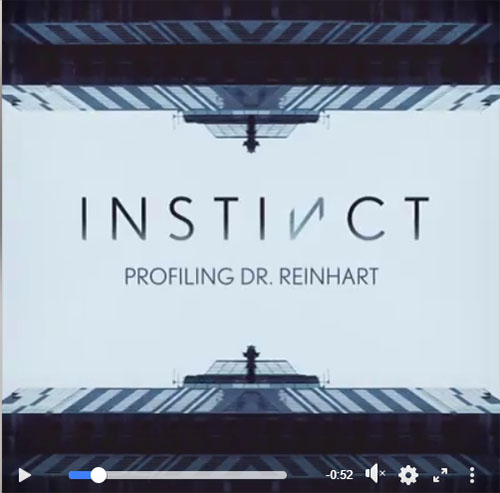
*****************************
CIA Jobs
Silent Professionals Private Security Job Market
silentprofessionals.org/cia-jobs/
Accessed: 9/7/22
https://silentprofessionals.org/cia-jobs/
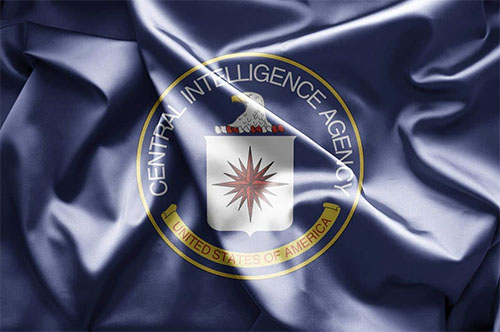
CIA Jobs
The Central Intelligence Agency (CIA) is an independent agency of the US Federal Government, tasked with gathering, processing, and analyzing national security information from around the world, primarily through the use of human intelligence (HUMINT). The CIA is the only US agency authorized by law to carry out and oversee covert action at the behest of the President of the United States. It exerts foreign political influence through its tactical divisions, such as the Special Activities Division.
After 9/11, the CIA increasingly expanded its role, including covert paramilitary operations. Recently, one of its largest divisions, the Information Operations Center (IOC), has shifted focus from counter-terrorism to offensive cyber-operations.
The CIA offers direct-hire jobs through its career portal; however, the agency frequently works with vetted US private security companies. These strategic partnerships are necessary because of the varying degrees and depths of skills, training and experience necessary to be able to successfully execute certain types of jobs.
CIA Job Requirements
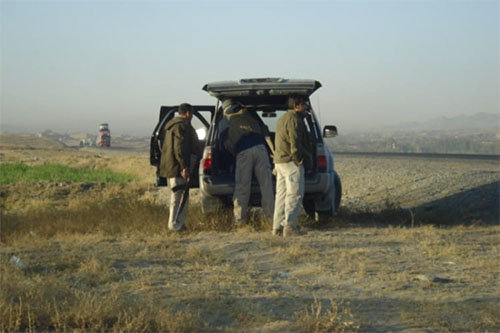
The first thing to know is that working for the CIA requires a person to be a United States citizen and have a relatively clean criminal background. Usually, a bachelor’s degree is also required with a grade point average of at least a 3.0 and above – but a degree is not always required, depending upon the job. Besides these general requirements, recruiters from the CIA will look for people who are fluent in different languages and understand foreign cultures as this makes gathering information abroad more efficient. The CIA also tends to hire those who have a high level of experience in the military, as well as business, economics and biological, chemical and nuclear engineering.
That said, there are many valuable skills that the CIA will look for that don’t necessarily have anything to do with your degree or what’s on your resume. These skills have more to do with a person’s inherent disposition and natural instincts. To exemplify this, the CIA will look for people who demonstrate a profound ability to handle stress, multi-task, problem solve, and manipulate. Also, as with any type of job that requires people to work as a team, the CIA will look for natural born leaders and team players.
Furthermore, you must have a skill set which makes you useful in accomplishing complex and asymmetrical tasks. This can be a bit tricky because there are lots of different skills that can be used to gather the information the CIA needs to operate successfully.
Entry-Level Positions with the CIA
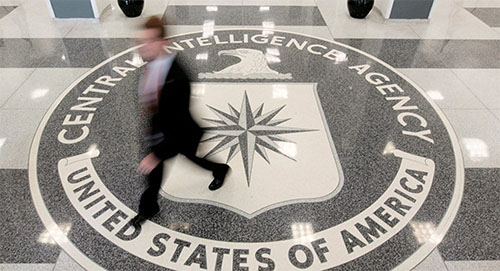
If you don’t possess an extensive military background or possess much in terms of high-level skills, there are generally four “entry-level” positions that individuals can apply for after they have met and passed the initial screening and training process.
The first is called Core Collectors and Operations Officers. The people who perform this CIA job work abroad finding, recruiting, and sometimes protecting foreigners who are providing the CIA with useful intelligence.
The next job is Collection Management Officers who evaluate and assign the Core Collectors and Operations Officers their workloads. These higher-ups will then take the information gathered, determine its usefulness and validity and then forward it to the appropriate foreign policy and intelligence communities for further analysis.
Next up are Staff Operations Officers who work as liaisons between the CIA’s home office and the agents in the field overseas. They basically make sure that whatever the President and others high up want done is communicated to those working as agents in a foreign land. This involves covertly traveling to wherever the agents are located and providing them with whatever information they need.
Finally, there are Specialized Skills Officers and they are the agents who are sent wherever their unique skill set is going to be most useful. This can be an area where an agent’s specific language, technical, media relations or combat skills are going to be best served in accomplishing the mission’s goals.
Other Specialized Jobs
There are many various specialized jobs within the CIA and recruiting for these positions takes extensive and careful vetting. Often times, these operators / agents operate independently or in very small teams. Finding uniquely-skilled and capable operators is a challenge in itself; however, there are even greater challenges in identifying candidates with the right personality and demonstrated maturity. For this reason, the recruitment and vetting process for these roles is complex and involved.
Although field agents may be operating in small teams, there are much larger support teams that exist for those operations. Large support teams also require infrastructure, so there are many jobs with the CIA that exist that range from installation security guards all the way to cooks and cleaners. Even the most mundane job typically requires candidates with a Top Secret clearance. Additionally, Agency jobs almost always require successful completion of a Polygraph examination.
Tough clearance and background check requirements like these present a challenge to the CIA’s overall recruitment process. For this reason, candidates who already possess an active TS/SCI clearance can get their foot in the door much easier than most other candidates.
*****************************
Cerraduras de seguridad, topes de puertas y desvíos: la CIA comparte cómo viajar como un espía
POR MICHAEL WILNER
El Nuevo Herald
27 DE MAYO DE 2022 2:51 PM
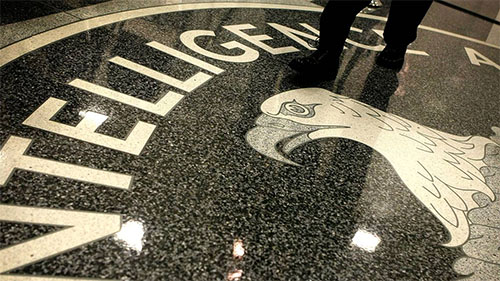
Logotipo de la Agencia Central de Inteligencia en el vestíbulo del edificio de la sede original en McLean, Virginia. ALEX WONG Getty Images
¿Se alojará en un hotel de gran altura este verano? Pida una habitación por debajo de los pisos superiores, pero por encima del primero. Familiarícese con las salidas. Y lleve su propio sistema de bloqueo de puertas.
La CIA ofrece estos y otros consejos antes del fin de semana del Memorial Day, basándose en las mejores prácticas de los oficiales de la CIA ubicados en capitales mundiales, puestos remotos y zonas de conflicto activo, a medida que aumenta la temporada de viajes de verano y se reducen las restricciones por coronavirus.
Llámelo “estrategia de viaje”, dijo la agencia, publicando los nuevos consejos en su portal digital. “Tanto si va a una ciudad bulliciosa como a una escapada aislada este verano, esperamos que estos “consejos de viaje” de la CIA lo ayuden a viajar con más confianza y seguridad”.
Algunas de las orientaciones son prácticas habituales para los viajeros experimentados. La agencia de espionaje recomienda llegar al aeropuerto con antelación, llevar una fotocopia del pasaporte y registrarse en la embajada de Estados Unidos cuando se viaja al extranjero.
Pero algunos de sus consejos son más inteligentes que los de los espías.
"No sea un blanco fácil”, dice la guía. “Háganos caso, no debe llamar la atención pareciendo perdido o distraído”.
Al llegar a un lugar, la agencia recomienda preguntar a los funcionarios del aeropuerto cuánto debe costar un taxi hasta su hotel —no confiar en el taxista— y usar solo los taxis oficiales del aeropuerto.
Recomiendan aprender algunas palabras básicas en el idioma local, como “hola”, “adiós” y “policía”.
Y sugieren mantener al mínimo los tragos que se tome.
“Los espías pueden beber martinis en las películas, pero el alcohol disminuye el estado de alerta y el juicio”, dice la guía. “Hay que estar alerta y mantenerse al tanto de la situación que lo rodea, especialmente en un país desconocido”.
Una vez que haya llegado a su destino, la CIA sugiere que se familiarice con las vías de escape de emergencia del hotel y que evite las escaleras— donde es más probable que se ocurran delitos que en los ascensores— salvo en caso de emergencia.
Y dicen que hay que solicitar una habitación de hotel en el piso de en medio de un rascacielos. “Estar en la planta baja puede dejarte más vulnerable a los robos, pero el personal de respuesta a emergencias de muchos países no está equipado para llegar más arriba de unos pocos pisos del suelo”, se lee. “Considere la posibilidad de solicitar una habitación en un lugar intermedio”.
Use cerraduras de seguridad en su habitación de hotel, porque “las cerraduras automáticas de las puertas de las habitaciones de hotel a menudo pueden forzarse y las cadenas cortadas”, dice la guía.
No abra la puerta si el servicio de habitaciones, la limpieza o el mantenimiento llaman a la puerta de forma inesperada.
Y añada a su lista de equipaje un dispositivo de seguridad barato y sencillo. “¿Sabe qué más puede ayudar a mantener una puerta cerrada? Un tope de puerta”, dice. “Considere la posibilidad de invertir en una cerradura de puerta portátil para viajeros o en una alarma para ayudar a asegurar aún más su habitación de hotel”.
La nueva guía forma parte de la serie Ask Molly de la agencia de inteligencia, un foro en línea de la CIA que responde a las preguntas del público.
La agencia también sugiere trazar desvíos en sus excursiones de viaje para evitar las partes peligrosas de la ciudad y los barrios mal iluminados por la noche.
Y, sobre todo, sugiere confiar en sus instintos.
Un mapa para ayudar a entender y seguir los instintos (English translation: A Map to Help Understand and Follow One's Instincts), EI Nuevo Herald, Aug. 6, 2002, at C3. Copy supplied.
-- UNITED STATES SENATE COMMITTEE ON THE JUDICIARY QUESTIONNAIRE FOR JUDICIAL NOMINEES, PUBLIC [AILEEN MERCEDES CANNON]
“Sabemos por experiencia que cuando algo no parece bien, muchas veces no lo está”, dice la guía. “Alguien que está demasiado cerca de usted, que lo sigue por varios lugares, que merodea afuera de su habitación: si una situación ;p hace sospechar, aléjese o busca ayuda”.
“La forma más rápida de salir de una crisis es evitar los problemas en primer lugar”, añade. “Si escucha que está ocurriendo un disturbio cuando está fuera, aléjese y deje la recopilación de información en nuestras manos. La conmoción podría ser un peligro creciente o una distracción creada para ayudar a alguien a robarle. Su misión es llegar a casa sano y salvo”.
Read more at: https://www.elnuevoherald.com/noticias/ ... rylink=cpy
[GOOGLE TRANSLATE:
Security locks, doorstops and bypasses: CIA shares how to travel like a spy
by Michael Wilner
El Nuevo Herald
[The Miami Herald]
MAY 27, 2022 2:51 PM

Central Intelligence Agency logo in the lobby of the original headquarters building in McLean, Virginia. ALEX WONG Getty Images
Will you be staying in a high-rise hotel this summer? Ask for a room below the upper floors, but above the first. Familiarize yourself with the exits. And bring your own door lock system.
The CIA offers these and other tips ahead of Memorial Day weekend, drawing on best practices from CIA officers stationed in world capitals, remote outposts and active conflict zones, as the summer travel season ramps up and coronavirus restrictions are reduced.
Call it "travel strategy," the agency said, posting the new advice on its website. "Whether you're heading to a bustling city or a secluded getaway this summer, we hope these CIA 'travel tips' will help you travel more confidently and safely."
Some of the guidance is standard practice for seasoned travelers. The spy agency recommends arriving at the airport early, carrying a photocopy of your passport, and registering at the US embassy when traveling abroad.
But some of his advice is smarter than that of the spies.
"Don't be an easy target," says the guide. "Trust us, you shouldn't draw attention to yourself by looking lost or distracted."
When arriving somewhere, the agency recommends asking airport officials how much a taxi should cost to your hotel—don't trust the driver—and use only official airport taxis.
They recommend learning some basic words in the local language, such as “hello”, “goodbye” and “police”.
And they suggest keeping your drinks to a minimum.
"Spies can drink martinis in the movies, but alcohol impairs alertness and judgment," the guide says. “You have to be alert and stay aware of the situation around you, especially in an unknown country.”
Once you've reached your destination, the CIA suggests familiarizing yourself with the hotel's emergency escape routes and avoiding the stairs—where crimes are more likely to occur than the elevators—except in an emergency.
And they say you have to request a hotel room on the floor in the middle of a skyscraper. “Being on the ground floor can leave you more vulnerable to break-ins, but emergency response personnel in many countries are not equipped to reach higher than a few floors off the ground,” it reads. "Consider requesting a room somewhere in between."
Use security locks in your hotel room, because “automatic hotel room door locks can often be picked and chains cut,” the guide says.
Do not open the door if room service, housekeeping, or maintenance knocks on the door unexpectedly.
And add a cheap and simple security device to your packing list. “You know what else can help keep a door closed? A doorstop,” he says. “Consider investing in a portable traveler door lock or alarm to help further secure your hotel room.”
The new guide is part of the intelligence agency's Ask Molly series, an online CIA forum that answers questions from the public.
The agency also suggests planning detours on your travel excursions to avoid dangerous parts of the city and poorly lit neighborhoods at night.
And, above all, it suggests trusting your instincts.
Un mapa para ayudar a entender y seguir los instintos (English translation: A Map to Help Understand and Follow One's Instincts), EI Nuevo Herald, Aug. 6, 2002, at C3. Copy supplied.
-- UNITED STATES SENATE COMMITTEE ON THE JUDICIARY QUESTIONNAIRE FOR JUDICIAL NOMINEES, PUBLIC [AILEEN MERCEDES CANNON]
“We know from experience that when something doesn't look right, it often isn't,” says the guide. "Someone who is too close to you, following you around, lurking outside your room: If a situation is suspicious, walk away or get help."
“The fastest way out of a crisis is to avoid the problems in the first place,” he adds. “If you hear there's a disturbance going on when you're away, walk away and leave the intelligence gathering to us. The commotion could be a growing danger or a distraction created to help someone steal from you. His mission is to get home safe and sound.”]
